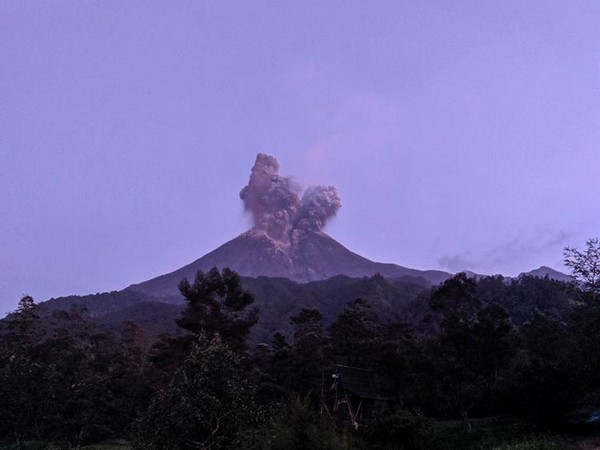
Iceland evacuations as volcano spews lava again
Mar 17, 2024
Reykjavik [Iceland], March 17: A state of emergency has been declared in southern Iceland because of another volcanic eruption on the Reykjanes Peninsula - the fourth since December.
Among those being asked to leave the area are residents of the small town of Grindavik, which has been badly affected by the ongoing flare-ups.
The nearby Blue Lagoon, one of Iceland's most popular tourist attractions, has also been evacuated.
Iceland's airspace remains open. A giant lava spill is billowing smoke.
According to the country's civil defence service, the eruption began after 20:00 local time (20:00 GMT) on Saturday between Hagafell and Stora-Scogfell - north of Grindavik.
This is a similar location to the eruption that began on 8 December.
Footage of the explosion showed clouds of smoke and glowing magma oozing and bubbling from vents in the earth.
The Icelandic Meteorological Agency said the lead-up to the eruption was short and an initial assessment indicated the same amount of magma was emerging as in December.
It added that bad weather expected to set in was likely to affect its ability to monitor what was happening to some extent.
Keflavik International Airport and other regional airports have not been affected by the explosion, but the Blue Lagoon is closed until further notice as a precaution.
The roughly 4,000 residents of Grindavik were only allowed to return to their homes about a month ago after an eruption in January saw magma spread into the town, destroying three homes.
The AFP news agency reported that only around 100 had chosen to go back.
In February, another eruption in the area led to a key water pipe bursting - disrupting services to many people.
Iceland has 33 active volcano systems and sits over what is known as the Mid-Atlantic Ridge, the boundary between two of the largest tectonic plates on the planet.
The last time the Reykjanes Peninsula had a period of volcanic activity was 800 years ago - and the eruptions went on for decades.
This is now the seventh eruption since 2021, and scientists believe the area is entering a new volcanic era that could last for decades or even centuries.
Source: Fijian Broadcasting Cooperation









